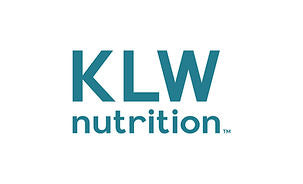Zinc is VERY important for immune system support, which is why we have included it in My Immune Hero.
This mineral is a powerful antioxidant and is vital for strong, balanced immunity. It boosts infection-fighting white blood cells and supports the normal functioning of our immune cells. It is critical for immune function and for the development of cells that support our immunity.
Deficiency in this mineral has been shown to negatively impact the number and function of cells known as lymphocytes, with important immune cells (T cells) being particularly vulnerable to zinc deficiency (1). A deficiency in zinc causes the thymus to shrink, which leads to low numbers of vital T cells, and can alter cytokine function, leading to damaging and harmful oxidative stress and inflammation.
|
CYTOKINE - a cytokine is a small protein that is essential in controlling the growth and activity of immune system cells and blood cells. They are produced by a broad range of cells, including immune cells. When they are released they signal to the immune system to do its job. Different types of cytokines, include: interleukins (IL), tumour necrosis factor (TNF), interferons and lymphokines.
Cytokines are essential for a healthy immune system and we need the right amount of cytokines as high levels can lead to excessive inflammation and serious health complications. |
Even mild deficiency can impact aspects of immunity (2). Older individuals can be especially at risk of deficiency given that there is a high prevalence of inadequate dietary zinc intake among those 60 years or older, and that plasma zinc levels declines with age. It is not known why plasma zinc declines, but weakened absorption may be a factor. Several RCT studies (the golden standard in clinical trials) suggest that supplementation with low - moderate doses of zinc (10-45mg day) in healthy older individuals improves immune function.
Zinc is also a key player in cellular metabolism, and is needed for enzyme activity, as well as protein & DNA synthesis and cell division.
| ENZYME - an enzyme is a protein that helps speed up chemical reactions in the body. They are essential for thousands of roles, including: breathing, digestion, muscle and nerve function. Each cell in the human body contains thousands of enzymes. |
Aside from supporting our immune system, this super important mineral is vital for wound healing, growth and development during childhood, and is also very important in pregnancy, as it helps to build a baby's cells and DNA.
In the UK, government guidelines for those aged 19-64 is 9.5mg (men) and 7mg (women). In the US, 11mg for men and 8mg for women is recommended, thus we decided based on current research to include 10mg of this essential immune-nourishing mineral in My Immune Hero.
What foods can zinc be found in?
Oysters contain more zinc per serving than any other food, but red meat, poultry and shellfish provide the majority of zinc in the average Western diet. Other good food sources include beans, nuts, wholegrains, pumpkin seeds and dairy products. Phytates that are present in wholegrain breads, cereals, and legumes can inhibit zinc absorption, which we don't want! Thus, the bioavailability of zinc from grains and plant foods is lower than that from animal foods, although many grain and plant-based foods are still good sources of zinc.
Should you supplement?
The UK Department of Health recommends that zinc intake should not be over 25mg per day, so if you do decide to take a zinc supplement check the label that it does not contain over 25mg per day - you also need to consider how much zinc you consume through your daily diet. Toxicity of vitamins and minerals is as bad as deficiency and can lead to some nasty symptoms.
Furthermore, high doses of zinc reduce the amount of copper the body can absorb, which can lead to anaemia and weakening of the bones - so just make sure you stay within the guidelines!
References
(1) Bonaventura, P et al. Zinc and its role in immunity and inflammation. Autoimmun Rev,2015;14(4):277-285.
(2) Ibs, K et al. Diet and Human Immune Function. Totowa, New Jersey:Human Press Inc.:2004:241-259.

